Unloc in the Media

One of our core missions is to disseminate results and inform the broad scientific audience as well as the general public about activities conducted within the UNLOC programme. We are often featured in various national and international media outlets. Browse through this page to find out more about the press coverage of the UNLOC program.
Interest from journalists and the media is always welcome. Please contact our communications manager via
Media Coverage
Transceiver noise limits optical system performance more than expected - Fibre Systems
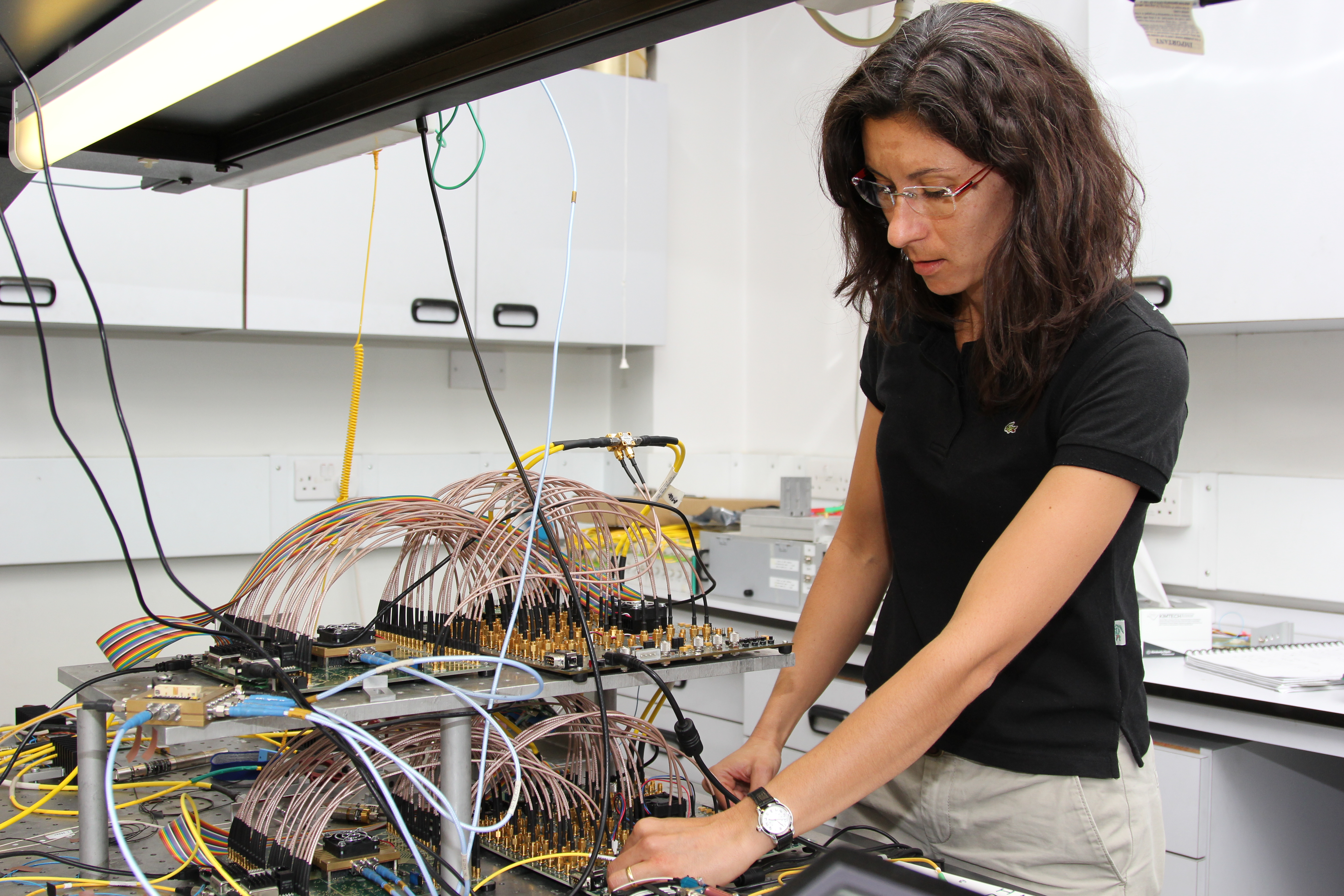
Prof Bayvel comments on Internet "playground" in New Scientist
Prof Polina Bayvel comments on a project testing out new internet infrastructure using a separate network in the pursuit of delivering smart cities. You can read the article, from February 2017, on the New Scientist Website.
Probing the limits of coherent optical transmission - Fibre Systems
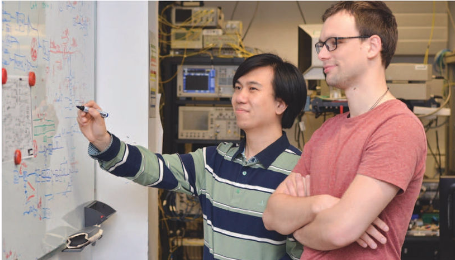
UNLOC comments on BT's G.Fast in Bloomberg
Prof Polina Bayvel provided comment in a Bloomberg article on BT's controversial preference for updating copper networks rather than laying fibre. The article was published on 10 October 2016.
'UNLOC-ing the future' - New Electronics
UNLOC has been featured in a two-page article in the Next Generation Communications section of New Electronics Magazine. The article was based on an interview with Prof Polina Bayvel and lays out the history of the UCL Electronic and Electrical Engineering Department and the achievements and next steps for the UNLOC programme. The article starts on page 23.
Fibre Systems feature UNLOC's research to postpone the 'capacity crunch'
UNLOC research in digital back-propagation and other nonlinearity compensation techniques has been featured in the Fibre Systems Autumn issue. UNLOC co-investigator Prof Andrew Ellis describes how work by the UNLOC programme is helping to postpone the 'capacity crunch'. The issue is also distributed at ECOC 2016, Next Generation Optical Networking North America 2016 and Broadband World Forum 2016.
150 years since the first transatlantic cable
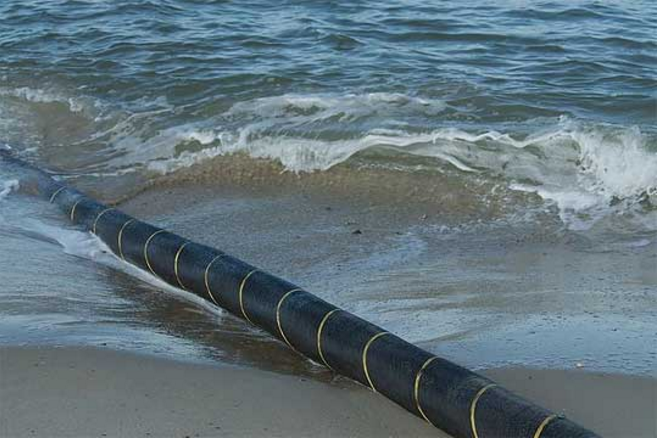
How could Brexit affect scientific research in the UK?
 UNLOC director, Prof Polina Bayvel and other UK researchers were interviewed by science correspondent Alok Jha for ITV News who asked them what remaining or leaving the EU will mean for scientific research in the UK. Read his piece and watch the ITV News (Prof Bayvel appears at 1 min 58 sec).
UNLOC director, Prof Polina Bayvel and other UK researchers were interviewed by science correspondent Alok Jha for ITV News who asked them what remaining or leaving the EU will mean for scientific research in the UK. Read his piece and watch the ITV News (Prof Bayvel appears at 1 min 58 sec).
Boosting Bandwidth
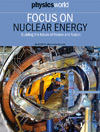
UNLOC co-investigator, Prof Andrew Ellis urges us to consider the wider societal benefits and potential harm of an ever growing internet capacity as research & technology address the technical challenges of avoiding a potential capacity crunch. Read his comment piece published in the latest issue of Physics World.
Record Set for Fastest Data Rate
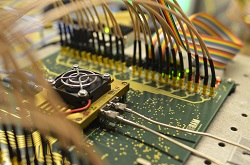 UNLOC programme featured in the widely popular BBC Click show. Watch host Spencer Kelly get excited in our labs while learning how we achieved 1.125TB/s data rates - the fastest recorded to date with a single receiver. Segment starts at 16min 58sec.
UNLOC programme featured in the widely popular BBC Click show. Watch host Spencer Kelly get excited in our labs while learning how we achieved 1.125TB/s data rates - the fastest recorded to date with a single receiver. Segment starts at 16min 58sec.
Mitsubishi Electric Research Laboratories (MERL) develop a 1 Tb/s receiver in collaboration with Optical Networks Group and UNLOC.
Research that led to the development of a 1 Tb/s receiver carried out by Mitsubishi Electric Research Laboratories in collaboration with our group at UCL was selected to be presented at a press conference in Japan on Feb 15, 2016. This work was one of only fifteen across all Mitsubishi departments to be featured in an official press release.
- Mitsubishi official press release, 15-02-2016
New hardware to expand fast fibre-to-the-home
A press release issued by UNLOC and UCL featured the development of a new optical receiver that can significantly reduce the cost of deployment of fibre-to-the-home infrastructure to our homes. The release received media attention especially in technical news platforms.
- Optics & Photonics News, 19-02-2016
- NextBigFuture (Blog), 18-02-2016
- Science Daily, 17-02-2016
- Gizmag, 16-02-2016
- The Engineer, 16-02-2016
- New Electronics, 16-02-2016
- MumbaiMirror, 16-02-2016
- Hexus.net, 16-02-2016
- Phys.org, 15-02-2016
- EurikaAAAS, 15-02-2016
- Business Standard (India), 15-02-2016
- AzoOptics, 15-02-2016
- NDTV Gadgets 360 (India), 15-02-2016
- Times of India, 16-02-2016
Record for fastest data rate set
A press release issued by UNLOC and UCL described exciting milestone achievement of record 1.125 Tb/s data rates for a super-channel and a single receiver. This news was picked up and widely covered by national and international media. Here is a selection of some articles that appeared in various media outlets and news platforms.
- New Scientist (print issue),20-02-2016
- NBCNews, 12-02-2016
- Optical Connections, 12-02-2016
- Crazy Engineers, 12-02-2016
- Mirror.co.uk, 12-02-2016
- El Pais, 12-02-2016 (in Spanish)
- Zigmag, 12-02-2016
- TechTimes, 12-02-2016
- Newsweek, 12-02-2016
- Global Times (China), 12-02-2016
- ZMEscience, 12-02-2016
- CBR, 12-02-2016
- Silicon Republic, 12-02-2016
- Techradar, 12-02-2016
- Broadband Choices, 12-02-2016
- NewElectronics.co.uk, 12-02-2016
- MashableUK, 12-02-2016
- Science Alert, 12-02-2016
- Telecompaper, 12-02-2016
- Cosmos, 12-02-2016
- Ecns.cn, 12-02-2016
- Cable.co.uk, 12-02-2016
- Phys.org, 11-02-2016
- The Telegraph, 11-02-2016
- Daily Mail, 11-02-2016
- Ubergizmo, 11-02-2016
- International Business Times, 11-02-2016
- Optics.org, 11-02-2016
- The Register, 11-02-2016
- Sydney Morning Herald, 11-02-2016
- Electronics Weekly, 11-02-2016
- Motherboard, 11-02-2016
- Gizmodo, 11-02-2016
- The Inquirer, 11-02-2016
- ECN Magazine, 11-02-2016
- E&T, 11-02-2016
- TechWorm, 11-02-2016
- ITPRO, 11-02-2016
- Express.co.uk, 11-02-2016
- EurikaAlert, 11-02-2016
- WN.com, 11-02-2016
Speeding up development of optical fibre transmission systems
A blog article based on our press release was published on the BBC R&D website and the Optical Keyhole newsletter which has one of the highest readership among telecommunications industry.
- BBC R&D frontpage, 30-11-2015
- Optical Keyhole Newsletter, 02-12-2015
A full fibre network is the only way to future-proof Britain's digital economy
An article written by UNLOC investigators Andrew Ellis, Polina Bayvel and Sergei Turitsyn which appreared in the Analysis & Comment column of the Science + Tech section of The Conversation.
- The Conversation, 30-11-2015
UNLOC TEAM WINS THE PRESTIGIOUS RAENG COLIN CAMPBELL MITCHELL AWARD
- Royal Academy of Engineering Official Press Release 03-07-2015
- Eurika Magazine, 06-07-2015
- UCL Engineering News, 06-07-2015
ROYAL SOCIETY DISCUSSION MEETING ON CAPACITY CRUNCH
- The Sunday Times, 03-05-2015
- The Telegraph, 03-05-2015
- The Daily Mirror, 03-05-2015
- The Independent, 04-05-2015
- Sky News, 11-05-2015
- New Scientist, 15-05-2015
- Gizmodo, 16-05-2015
- Engadget, 17-05-2015
- Daily Express, 09-06-2015
- Daily Mail, 09-06-2015
UNLOC RESEARCH PROMISES TO DOUBLE FIBRE OPTIC TRANSMISSION DISTANCES
- Fibre Systems, 04-03-2015
- Gizmag, 12-02-2015
- TechRepublic, 10-02-2015
- TheEngineer, 10-02-2015
- The Register, 05-02-2015
- Business Standard, 05-02-2015
- Crazy Engineers, 05-02-2015
- Electronics Weekly, 05-02-2015
- Market Business News, 05-02-2015
- PC World India, 05-02-2015
- Photonics Online, 05-02-2015
- Scientific Computing, 05-02-2015
- Phys.Org, 04-02-2015
- New Electronics, 04-02-2015
- TechWorld, 04-02-2015
UNLOC AWARDED A £4.8 MILLION EPSRC GRANT
- Compute Scotland, March 2012
- EPSRC News, March 2012
- Times Higher Education, March 2012
- UCL News, March 2012
